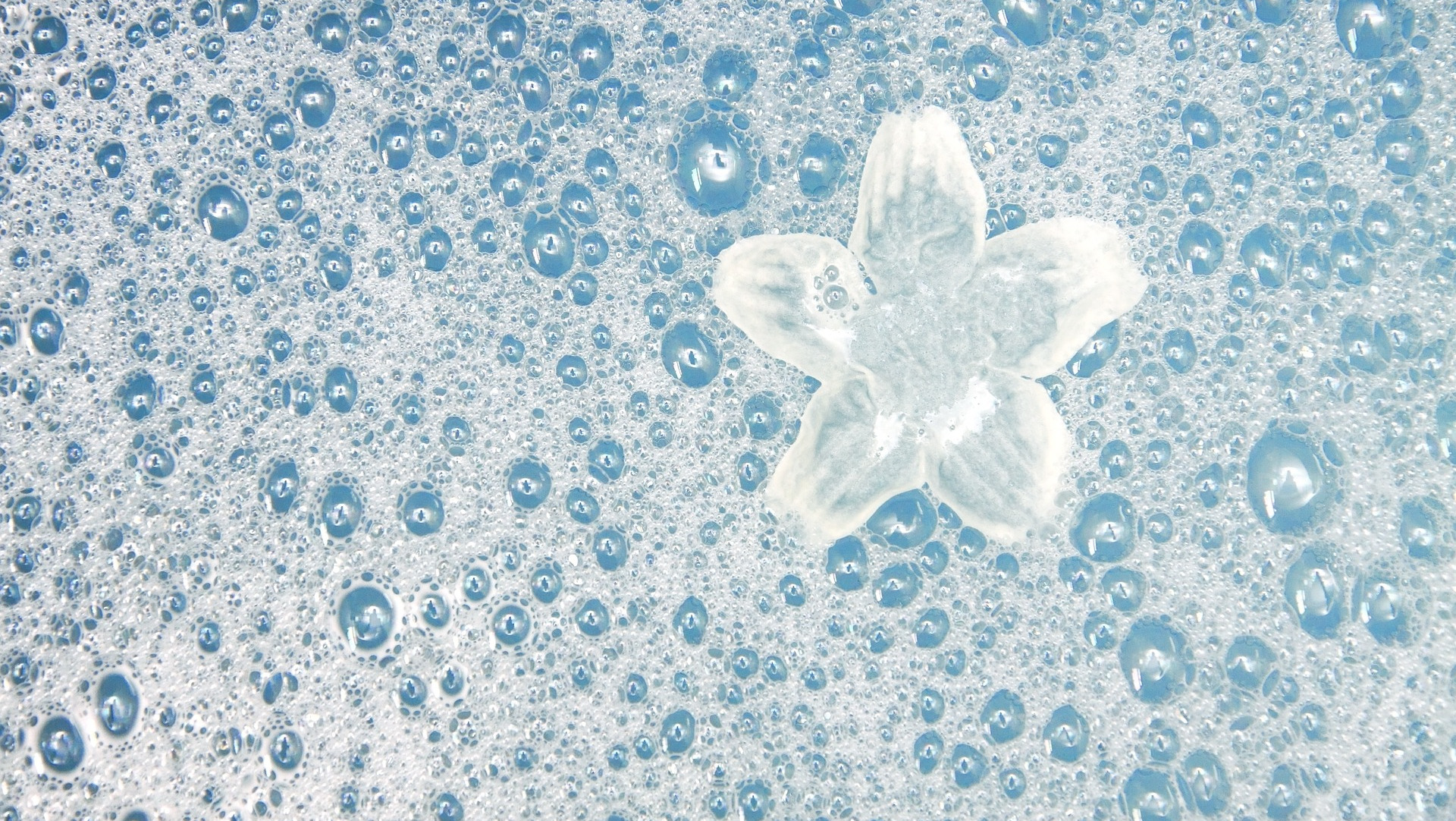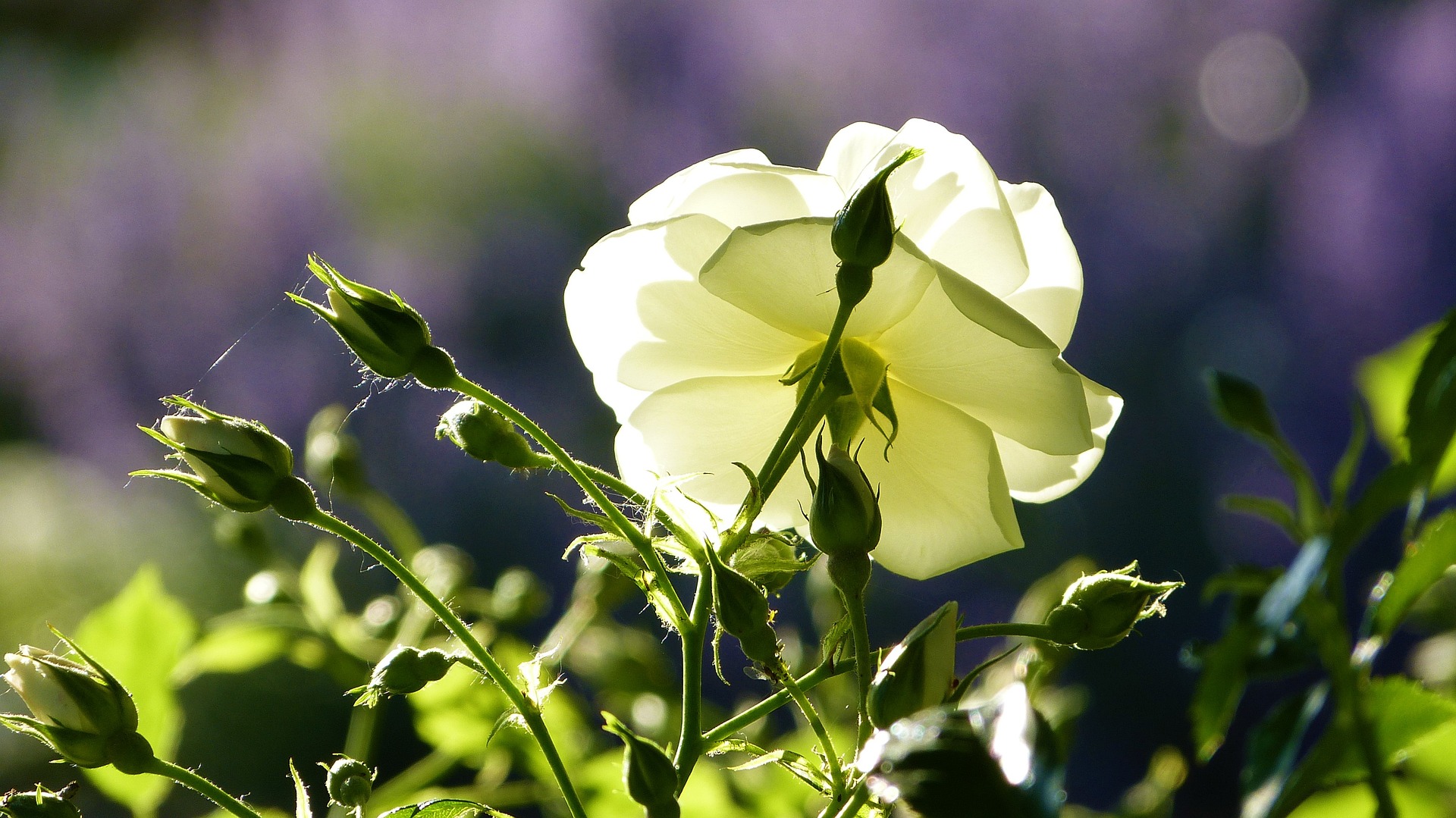Favorite Essential Oils for the Bath
Nothing is more relaxing than soaking in a hot, fragrant bath.
Essential oils make an already relaxing experience even better. One of the best things about essential oils is to tailor the scent to gain the specific healing properties you desire or to suit your fragrance preference. My favorite essential oils change with my mood or the season.
Using essential oils in the bath can be as simple as adding drops directly to the bath water. But you can also dilute the oils in a carrier oil (such as sweet almond or jojoba), shampoo or liquid body wash, or ½ cup milk or Epsom salts before you add them to the water.
Performing a Patch Test
If you have sensitive skin, you should check for allergic reactions to new oils by performing a skin patch test. Watch for red, inflamed, or itchy skin that breaks out in hives or other reactions. If the skin gets irritated during the test, wash the area with mild soap and water and stop using the oil.
- Dilute the essential oil in a carrier such as sweet almond.
- Place a couple of drops of the diluted oil on the inner wrist or inside your elbow and cover it with a bandage.
- Leave the covering on for about 12 hours. Keep the area dry.
- When the time is up, or if you notice a reaction, take the dressing off and look for irritation.
How to Use Aromatherapy in the Bath
- Adding essential oils directly to a running bath evaporates the aroma faster. Because of this, you should wait until the tub has filled with water before adding your oils.
- For children between 1 and 4 and pregnant women, add only 2 drops of oil per bath.
- Children under 1 year should have no more than 1 drop of oil per bath.
- For children between the ages of 4 and 12 or sensitive older people, add 4 drops of oil per bath.
Unlocking the Secrets of Popular Essential Oils for Bath Time Bliss
Bathing with essential oils can transform your daily routine into a spa-like experience, providing relaxation, stress relief, and relief from aching muscles. Two essential oils stand out when creating the perfect bath: lavender and eucalyptus. Here's why they deserve a place in your bath-time arsenal.
Lavender: The Soothing Elixir
The gentle yet enchanting aroma of lavender essential oil can calm your senses, reduce stress, and alleviate muscle tension in the bath. Lavender is celebrated for its multifaceted therapeutic properties, making it an ideal choice for bath time bliss. It's not just a pretty scent; it's a powerful tool for relaxation.
Lavender's therapeutic properties include being an effective sedative and possessing antispasmodic, antiseptic, and antibacterial qualities. Its versatility makes it a valuable asset in the world of essential oils. However, it's important to note that not all lavender-scented bath products are created equal. Many commercial bath items use synthetic lavender fragrances, not genuine lavender essential oil. Look for products with pure, therapeutic-grade essential oil to ensure you get the real deal.
Using lavender oil is as simple as it is effective. Just fill your bath, add 6-8 drops of lavender oil, and gently swirl the water before you step in. If you're dealing with muscle soreness or inflammation, consider mixing the essential oil with ½ cup of Epsom salts or milk before adding it to your bath. Epsom salts can help ease muscle tension, while a milk bath can provide skin-softening and moisturizing benefits.
Eucalyptus: The Respiratory Reviver
Eucalyptus essential oil is a breath of fresh air for your bath-time routine. It's known for clearing sinus congestion, unblocking stuffy noses, and relieving colds, bronchitis, the flu, and other respiratory issues. During the cold and flu season, eucalyptus becomes your trusty companion in the bath. Its refreshing scent is a natural remedy for respiratory discomfort. But eucalyptus is not just about clearing the air; it's also a fantastic stress reliever.
Inhaling the aroma of eucalyptus oil has a calming effect on both the mind and body. Its rejuvenating properties can help combat sluggishness, muscle pain, exhaustion, and mental fatigue. Even when you're not battling a cold or flu, eucalyptus can relieve the stresses of everyday life. To incorporate it into your bath routine, add 6-8 drops of eucalyptus oil to your bathwater before you take the plunge.
More Favorite Oils for the Tub
Lavender and eucalyptus are just the beginning of your bath-time adventure with essential oils. You can tailor your bath experience to your therapeutic needs and personal scent preferences. Some other popular choices for the bath include Bergamot, Neroli, Rose, Rose Geranium, Sandalwood, and Sweet Orange. Each of these oils brings its unique charm to your bathing rituals.
So, the next time you want to unwind, pamper yourself, or find relief from the day's stresses, consider the powerful influence of essential oils. Whether you prefer the soothing caress of lavender, the revitalizing touch of eucalyptus, or the alluring scents of other favorites, your bath can become a sanctuary of tranquility and rejuvenation with the simple addition of essential oils. Dive in and discover the delightful world of aromatic bath-time bliss.
Fascinating Essential Oil Facts
Centuries of Aromatherapy: The use of essential oils for their therapeutic properties dates back centuries, with records of their use found in ancient civilizations like Egypt, Greece, and India.
Aroma and Memory: The olfactory system, which is responsible for our sense of smell, is closely linked to the brain's limbic system, which controls emotions and memories. This connection is why scents, like those from essential oils, can trigger powerful emotional responses and vivid memories.
Steam Distillation: Most essential oils are produced using steam distillation. This process involves passing steam through plant material to extract the volatile aromatic compounds, which are then condensed into a liquid form.
Versatile Lavender: Lavender is one of the most versatile essential oils, known for its calming and soothing properties. It's often used for relaxation, sleep support, and skin care. Lavender essential oil is obtained from the lavender plant's flowers.
The Eucalyptus Empire: Eucalyptus essential oil comes from the leaves of the Eucalyptus tree, native to Australia. There are over 700 species of eucalyptus, and each can potentially produce different oil variations.
Healing Properties of Rose: Rose essential oil is highly sought after for its skincare benefits. It's known for its ability to promote skin rejuvenation, reduce the appearance of scars, and hydrate the skin. Rose essential oil is often considered a precious addition to beauty products.
Bergamot, the Citrus Secret: Bergamot essential oil is derived from the peel of the bergamot orange fruit. It's a unique citrus oil with a complex aroma, making it a popular choice in perfumery and aromatherapy. Bergamot oil is also known for its potential mood-enhancing properties.
Sandalwood's Spiritual Significance: Sandalwood essential oil is highly regarded for its earthy, woodsy aroma. It is often used in meditation and spiritual practices to promote focus and inner peace. Sandalwood trees are slow-growing and can take decades to yield oil-rich heartwood.
Sweet Orange Uplifts: Sweet Orange essential oil, derived from orange peels, has a bright and cheerful scent. It's valued for its uplifting properties and is often used to enhance mood and reduce stress and anxiety.
Neroli's Floral Elegance: Neroli essential oil, extracted from bitter orange blossoms, is known for its delicate, floral aroma. It's considered one of the most exquisite and costly essential oils. Neroli is often used in perfumery and skincare for its fragrant charm and skin-nurturing benefits.
Precious Rose Geranium: Rose Geranium essential oil boasts a sweet, rosy scent with a hint of green. It's revered for its potential to balance the skin's natural oil production and improve the appearance of the skin. Rose Geranium is often used in skincare and aromatherapy for its harmonizing properties.
Patchouli's Timeless Appeal: Patchouli essential oil is recognized for its earthy, musky aroma. It's known for its grounding.
Bath Blends
Why use just one essential oil when a blend can be even better? For instance, I love Lavender and Eucalyptus blended in the bath. Try some combinations added to Epsom salt, milk, or carrier oil.
Blend your oils in a dark-colored glass bottle. Refrain from storing your aromatherapy supplies in the hot and humid bathroom. Put the bottles in a cool, dark place to protect the quality of the oils.
Each recipe makes enough for two baths. After running the water, pour about 1 tablespoon of the mixture into the tub.
Relaxing Blend
- 9 drops of Sandalwood essential oil
- 6 drops of Neroli essential oil
- 6 drops of Lavender essential oil
Soothing Blend
- 6 drops of Rosemary essential oil
- 9 drops of Cedarwood essential oil
- 9 drops of Geranium essential oil
Calming Blend
This blend is great for PMS, menopause, depression, and general crankiness.
- 10 drops of Bergamot essential oil
- 10 drops of Sweet Orange essential oil
- 5 drops of Rose Geranium essential oil
- 4 fl ozs carrier oil, such as jojoba or grapeseed oil






